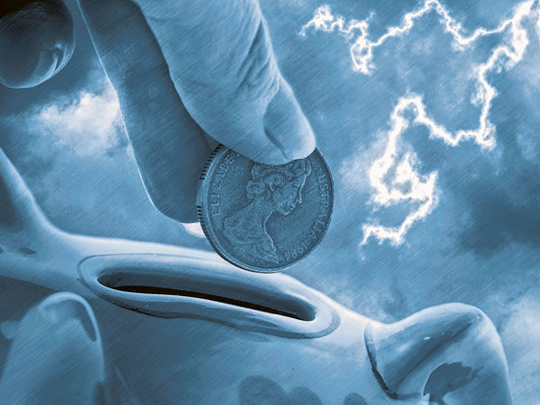
How much money do you waste? No one typically admits to wasting money, let alone keeping track of it. The reason could be because many of us simply don’t recognise the black holes where money disappears. Many financially suffer because of their recklessness, lack of planning or a combination of a busy lifestyle and a need for instant gratification.
Regardless of the reasons and what drives bad habits, it is important to pause occasionally and review your patterns that lead to wasting money or overspending.
If you’re looking for types of behaviours that can go under this category, here are four major examples.
Paying penalties
Do you often forget to pay utility bills and pay penalties and charges to reconnect services? Do you get speeding tickets? How about bank charges for failing to pay the minimum required on your credit card? If one of more of these examples sounds familiar, you need to get more organised immediately. With today’s available technology, you can easily set up reminders or even automate many of these payments to avoid penalties. When it comes to tickets and fines, it is a no-brainer that you or anyone would rather spend the money on anything else.
Paying penalties, charges and unnecessary fines can be a drag on any budget. In addition, it could ruin your credit history, which mean you may be consider a higher credit risk in the future — an unfavourable situation in bankers’ eyes who may compensate for it with charging you higher rates.
Random purchases
How often do you allow sales reps to talk you into buying something? If you’ve developed the habit of letting your guard down and getting convinced to buy something you’d not buy otherwise, you need to review how you do your shopping. If you spend your free time wandering the aisles of stores, navigating products that you don’t really need or want, you probably end up with purchases that don’t yield more than an instant gratification. These won’t only hurt your budget, they also would stop you from getting what you actually want and need when the time is right.
Paying unnecessary insurance
Do you know what your insurance covers and what it doesn’t? Taking an insurance policy without looking into the details can be a waste. You may be paying a higher premium because you’re getting coverage that you don’t really need — and vice versa. Just like shopping for anything else, take a good look at what you’re getting and make sure you understand what it is. If you’re having several policies in place — auto, home, etc — you must be sure that you’re not consistently paying higher-than-needed premiums, which can rack up a huge amount every year for something you don’t really need.
How much, really?
Many people don’t pay attention to incremental increases in their regular bills. You may get a notice from your bank that your credit card’s annual fee is now slightly higher or perhaps a promotional period on your Internet data package has expired and now you’re paying a lot more, but you’re not really paying attention. If you’ve bills set to be charged automatically on your credit card, you still need to keep watch for increases. You also need to make sure that you’re paying for extra services simply because they were bundled by your providers and never cared to unsubscribe or opt out.
One example is credit card insurance. If you’re using your credit card just for convenience and you’re paying it off regularly, do you need to pay an extra fee for insurance? Each and every such charge that is added to your monthly bills could add up to a huge amount every month and drain your budget. So don’t let carelessness or excessive trust lead you on an unknown path.
Rania Oteify, a former Gulf News Business Features Editor, is a Seattle-based editor.







